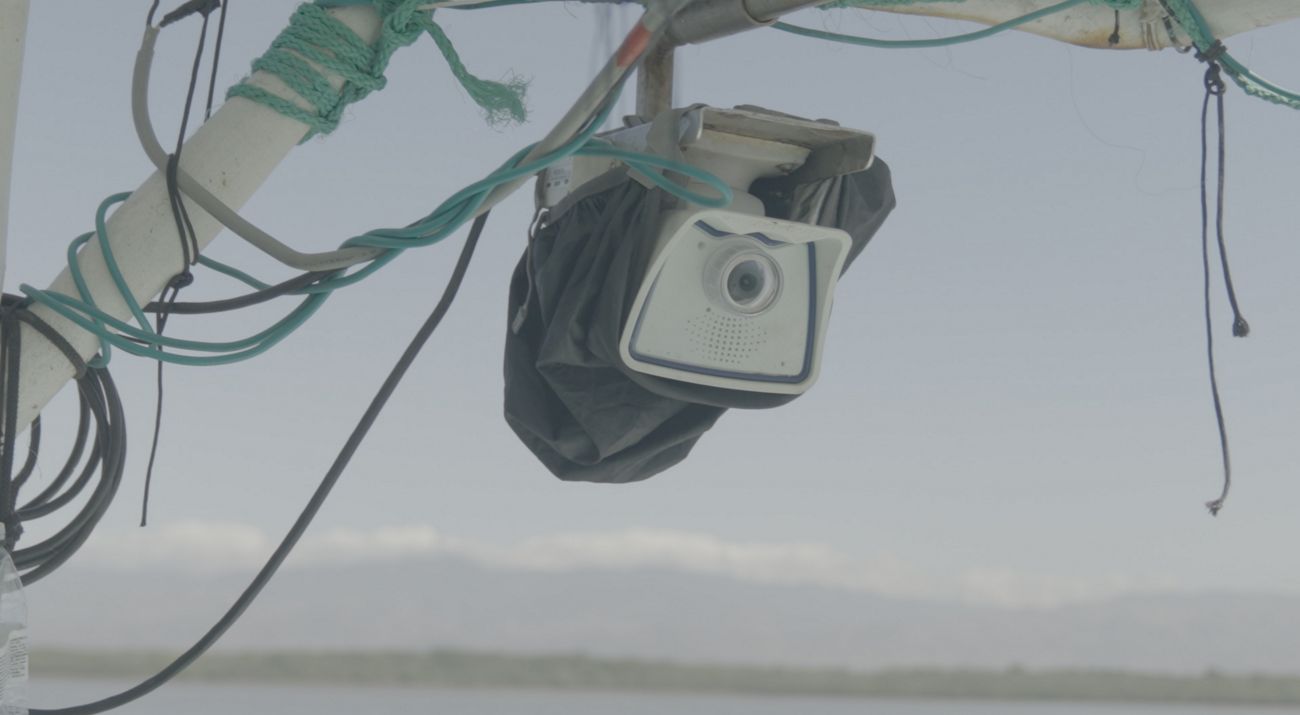The Nature Conservancy Awarded Pioneering Grant from Bezos Earth Fund’s AI Grand Challenge for Climate and Nature

Media Contacts
-
Kelley Galownia
The Nature Conservancy
Email: kelley.galownia@tnc.org
The Nature Conservancy is proud to announce it has been selected as one of the inaugural grantees in the Bezos Earth Fund’s groundbreaking AI Grand Challenge for Climate and Nature. The organization will receive a $50,000 Phase I grant to advance its pioneering work to mobilize edge AI technology for rapid electronic monitoring footage review to enhance industrial fisheries sustainably.
The AI Grand Challenge, launched with a commitment of up to $100 million in funding, supports bold, AI-powered ideas to combat climate change, halt biodiversity loss, and protect our planet’s future. The Nature Conservancy’s project to more efficiently monitor fishing activity using edge AI technology was chosen for its innovative potential and real-world impact.
Each Phase I grant recipient is now eligible to participate in Phase II of the challenge, where up to 15 projects will be selected to receive implementation grants of $2 million to scale their solutions over the next two years. The Nature Conservancy is among those being considered for this additional funding.
“Edge AI processing of electronic monitoring footage of industrial fishing activity can drive huge improvements in sustainable fisheries by positioning key actors to make time-sensitive management decisions and prevent illegal products from entering global supply chains,” said Vienna Saccomanno, Senior Fisheries Scientist of The Nature Conservancy. “We are honored to be a grantee of the Bezos Earth Fund’s AI Grand Challenge and, if our project is selected for Phase II, we look forward to further scaling this work in the Western and Central Pacific Ocean, which is home to some of the world’s largest fisheries.”
Large-scale fishing provides essential protein globally, but over one-third of the world’s fish stocks are fished at unsustainable levels. Illegal, unreported, and unregulated (IUU) fishing can lead to fish stock decline, altered food web dynamics, and decreased resilience of marine species and ecosystems to climate change impacts. Effective fisheries management requires verified monitoring data.
Electronic monitoring—the use of onboard video cameras, GPS and sensors to monitor and verify fishing activities at sea—has significant potential to improve fisheries sustainability and management when installed on industrial fishing vessels. However, the broad adoption of electronic monitoring is hindered by the immense volume of footage generated and the costs and logistics associated with footage review. Currently, the typical electronic monitoring footage review process involves manually shipping hard drives to human review centers after vessels return to port where the footage is analyzed long after the seafood products enter the supply chain. This prevents the delivery of timely, actionable data to stakeholders.
The Nature Conservancy seeks to dismantle barriers to scaling electronic monitoring by collaborating with service providers and technology companies to integrate edge AI—a form of computer vision that makes processing footage faster by analyzing the video aboard fishing vessels—and sharing successful models and approaches with the global electronic monitoring community. The Nature Conservancy’s edge computation approach generates an AI-predicted catch count and fish species composition report, which is automatically compared to the ship’s daily catch electronic logbook. This novel system architecture facilitates rapid verification of the captain’s catch reporting and sends select electronic monitoring footage over broadband satellite internet when secondary human review of the footage could be necessary.
Edge computing has been found to reduce electronic monitoring footage review time down from months to hours, providing fisheries managers, supply chain actors and government stakeholders with verified information on the legality and sustainability of a vessel's catch before products enter global supply chains, enabling continuous on-the-water improvements for marine biodiversity and sustainable protein.
The Bezos Earth Fund’s AI Grand Challenge focuses on sustainable proteins, power grid optimization, and biodiversity conservation—as well as other visionary wildcard solutions. The Nature Conservancy is contributing to the biodiversity conservation focus area.
The Nature Conservancy is a global conservation organization dedicated to conserving the lands and waters on which all life depends. Guided by science, we create innovative, on-the-ground solutions to our world’s toughest challenges so that nature and people can thrive together. We are tackling climate change, conserving lands, waters and oceans at an unprecedented scale, providing food and water sustainably and helping make cities more resilient. The Nature Conservancy is working to make a lasting difference around the world in 83 countries and territories (39 by direct conservation impact and 44 through partners) through a collaborative approach that engages local communities, governments, the private sector, and other partners. To learn more, visit nature.org or follow @nature_press on X.
About The Bezos Earth Fund
The Bezos Earth Fund is helping transform the fight against climate change with the largest ever philanthropic commitment to climate and nature protection. Jeff Bezos has committed $10 billion to protect nature and address climate change. By providing funding and expertise, we partner with organizations to accelerate innovation, break down barriers to success and create a more equitable and sustainable world. To learn more about the Bezos Earth Fund, visit: bezosearthfund.org.